Never mourn a dead, dried-out plant again when you use these plant-care apps
Our editors and experts handpick every product we feature. We may earn a commission from your purchases.Learn more.
Never mourn a dead, dried-out plant again when you use these plant-care apps
Our editors and experts handpick every product we feature. We may earn a commission from your purchases.Learn more.
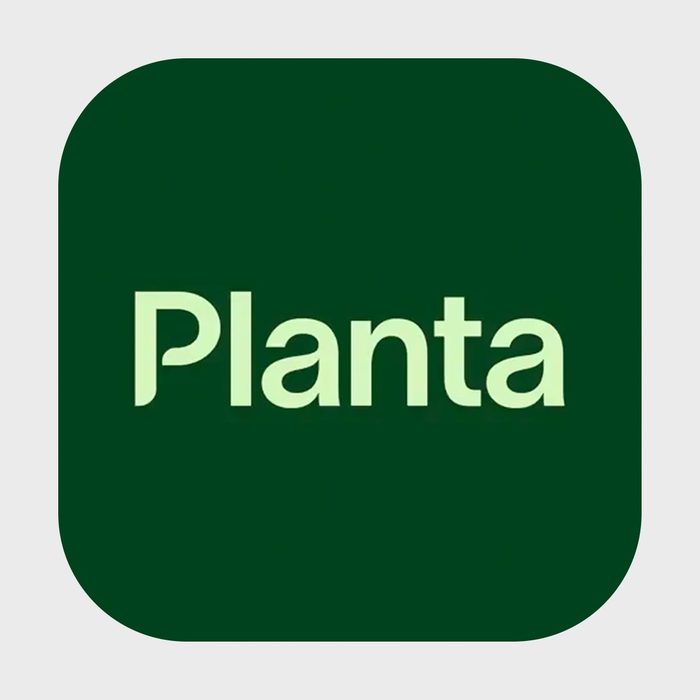
Pros:
Cons:
The people have spoken, and they love Planta! This is probably the most popular plant-health app. It has been recognized with an Editor’s Choice Award on the Apple Store, where it has an average 4.8-star rating, with more than 68,000 reviews. Those numbers are hard to beat! The app deserves its accolades, with a beautiful user interface and deluxe features. These include a light meter to measure sunlight and access to Dr. Planta, a plant-care expert who will help troubleshoot common plant problems.
However, these cool features are available only to premium subscribers (expensive at $8/month, but discounted at $36/year). Without these features, the free version has less capability, but it still has tons of information about water, soil and sunlight needs. At the free level, the Planta app can still send watering reminders and recommend plants based on your environment and your level of experience and commitment. The app recommends low-maintenance indoor plants for beginners, working up to more delicate plants for established plant parents.
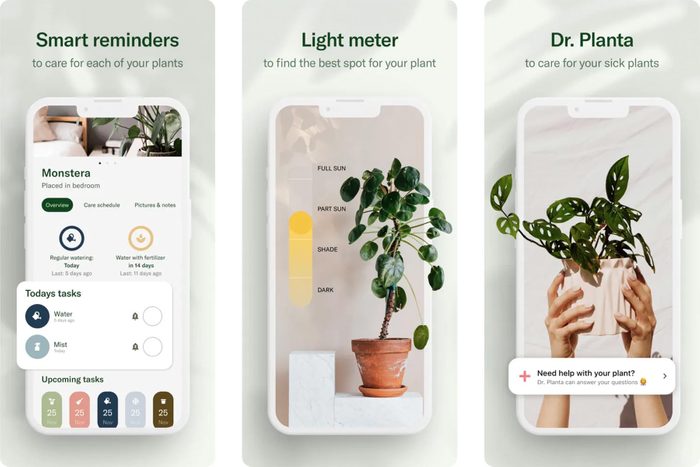
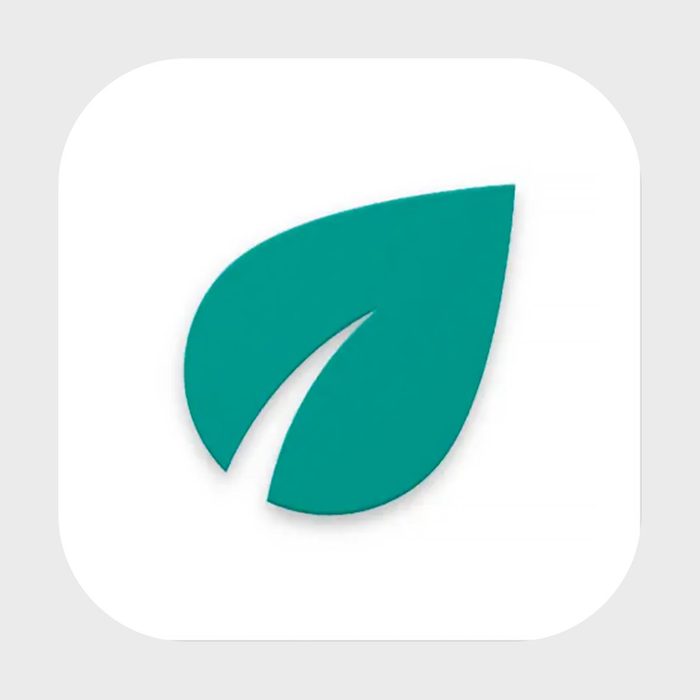
Pros:
Cons:
If you’re extra sentimental about your plants—or you love to journal—Plantnote is the app for you. It’s sort of like if a plant app met a baby scrapbook. You can take pictures of your plants as they grow and look back at their progress over time. The app also gives you a blank space where you can write any notes on your plants or their care. Unlike some apps, Plantnote doesn’t tell you how much water or light each plant needs: You set the schedule, and the app sends you reminders. This can be an upside for those who prefer to do their own research, or a downside for those who prefer an all-in-one app.
The free version has great functionality and is supported by a full-screen ad only once per day. If you want to upgrade, premium costs just $4 to remove ads and allow reminder grouping. The app also integrates with Google Lens to identify plants and with your phone’s map app (Apple Maps on iOS or Google Maps on Android) to identify local plant shops. Another bonus is the data backup option, which means you never lose your plant tracking progress. After all, plants are the new pets, and you want to watch them grow!
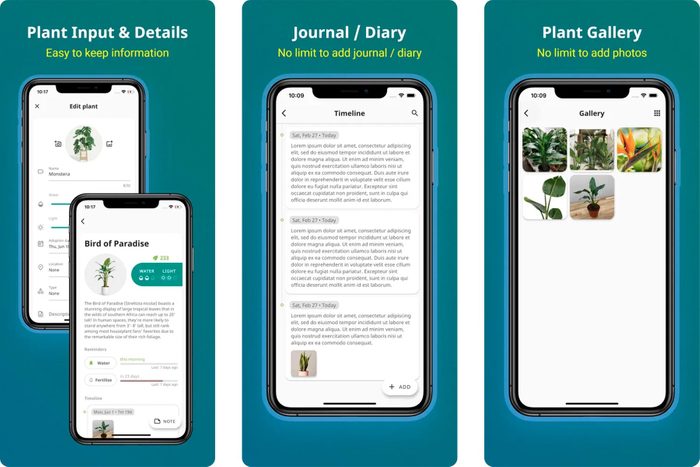
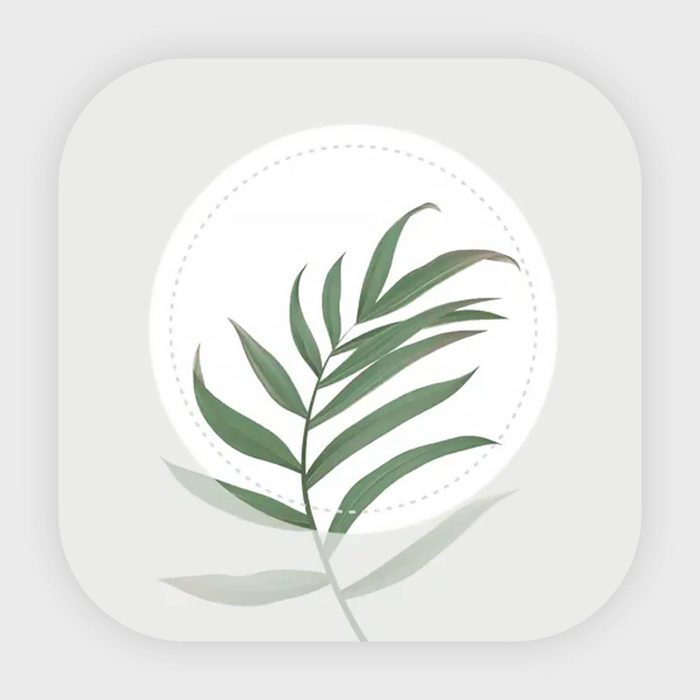
Pros:
Cons:
Blossom wins our award for most versatile because it also has functionality for outdoor gardens. Although it doesn’t dive into hydroponic gardening, the Blossom app provides information on how and when to start seeds for outdoor gardens, including seed spacing, planting dates and harvest dates. Another unique feature the app offers is integrated shopping, with links to suggested tools and plants on Amazon.
Blossom also has customizable weather alerts, a blog about plant care, watering reminders and plant picture ID. One cool feature of the picture ID? Disease identification; you snap a picture of your plant, and the app can tell you if you have powdery mildew or a spider mite infestation. However, some reviews do mention disappointment with the picture ID feature, so it may be a work in progress. Additionally, this feature is for subscribers only, at $4/month or $30/year.
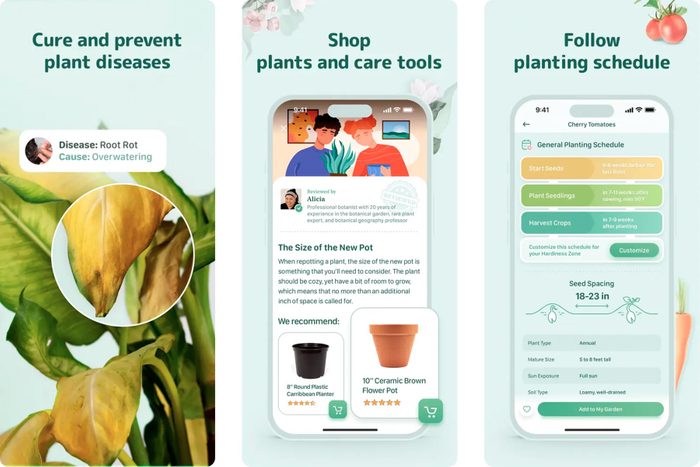
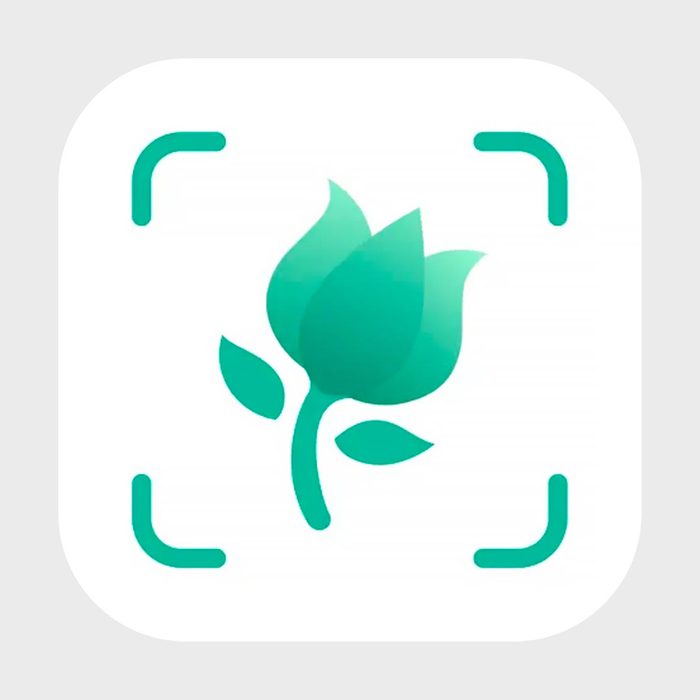
Pros:
Cons:
If picture ID is the main feature you’re looking for, PictureThis is the best plant-care app for you. On the App store, it boasts that it identifies more than a million plants every day, with 98% accuracy! And it’s great for more than just identifying your living room plants—it’s fun to use for identifying local flora on walks and trails, and it even gives warnings about plants that are poisonous. On top of that, the PictureThis app visually identifies diseases and gives steps to fix them and save your plant.
You can subscribe for $30/year, but if you look closely, you can also use the ID feature for free without subscribing. Once you identify a plant, the app will give you care instructions, and it can also send watering reminders like the other apps on this list.
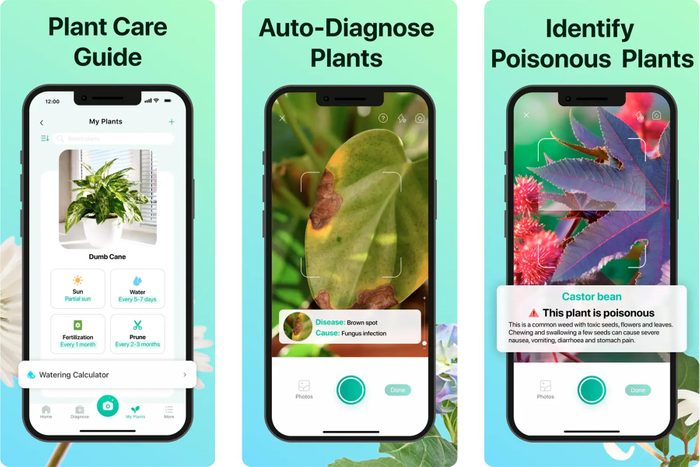
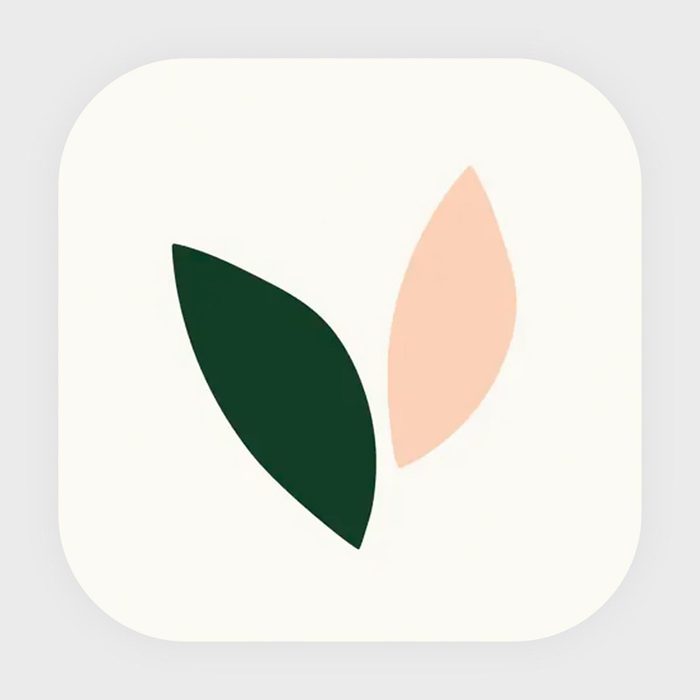
Pros:
Cons:
The Vera app was made by the gardening experts at Bloomscape, and it’s a completely free plant-care app. Although you have to create an account to use the app, it’s the best plant-care app if you don’t want to break the bank. It’s good for plant parents with a little more experience, because you set your own schedule rather than follow pre-set care advice. You can log activity, like the last time you watered, misted, fertilized or repotted a plant, and it will send reminders when it’s time to do it again. There’s also an in-app blog with helpful articles on plant care, great for those still developing their green thumb.
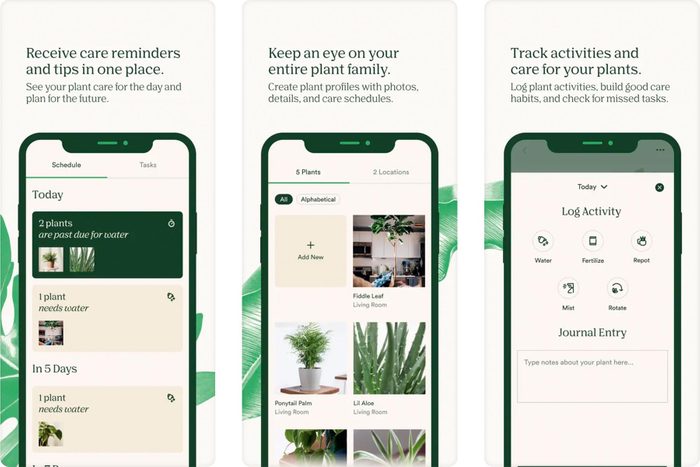
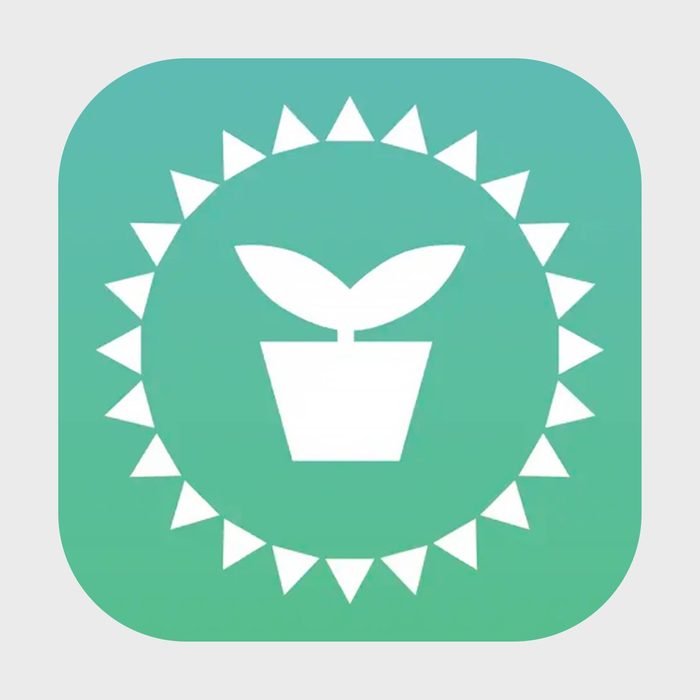
Pros:
Cons:
A completely free app that’s only available on iOS, Plant Light Meter is our pick for the best companion app. Unlike the other picks on this list, Plant Light doesn’t offer watering reminders, a blog of plant-care advice or any kind of plant ID. The app’s main function, which it does well, is to use your camera to measure how much light your plant receives. Choose from a small library of plants, take a picture of that plant in your home, and Plant Light will tell you how the available light matches up with the plant’s needs. If you don’t see your plant listed, there’s an “all plants” option that will tell you the amount of light present, and you can do your own research into how that matches the needs of your specific plant. The app also has a cute quiz built in, where you can test yourself on your plant recognition prowess.
The library of plants isn’t huge, and the app is lesser known as a result, with fewer than 1,000 reviews on the Apple store. It isn’t the best plant-care app on its own, but it works great as a companion to another app with more information on water and soil. Light measuring is often a premium feature locked behind subscription paywalls on other apps, so having this functionality for free is a game changer. With this app, never let your under-sunned succulents become tall and leggy again!
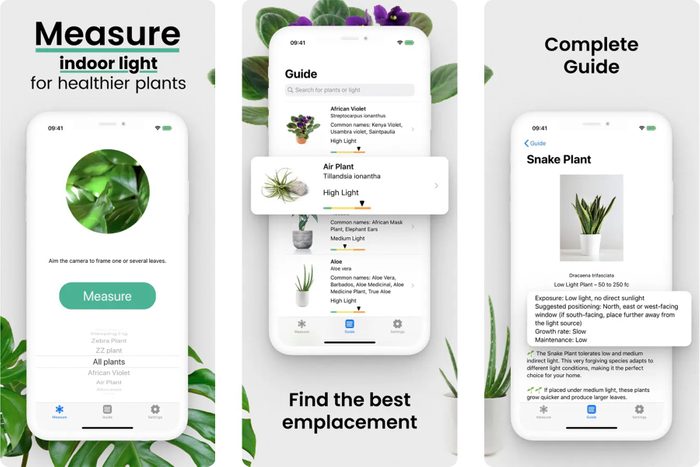
We selected the best plant-care apps by looking at a combination of popularity, customer reviews and unique features. We’ve also considered both free and subscription-based apps to include something for every price point. Though many deluxe features will only be available via a paid subscription, several apps in this roundup offer helpful utility even on their free tiers. With one exception, every app is available on both Apple and Android.